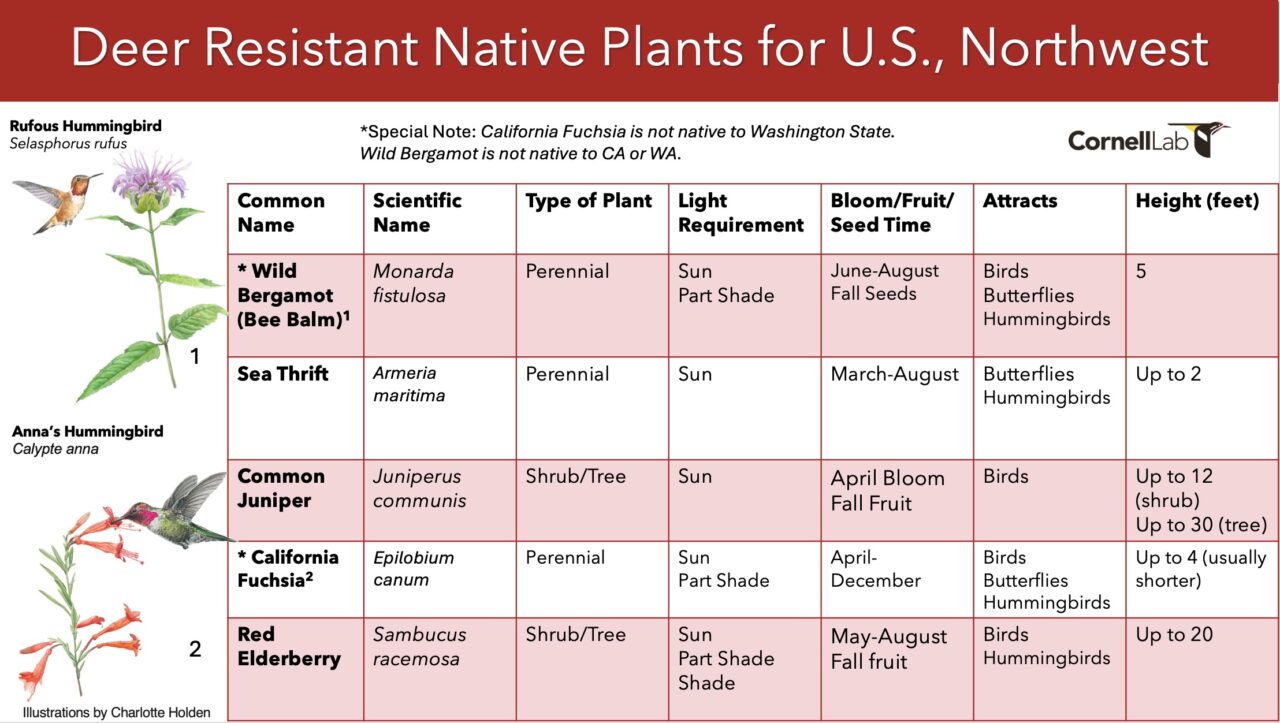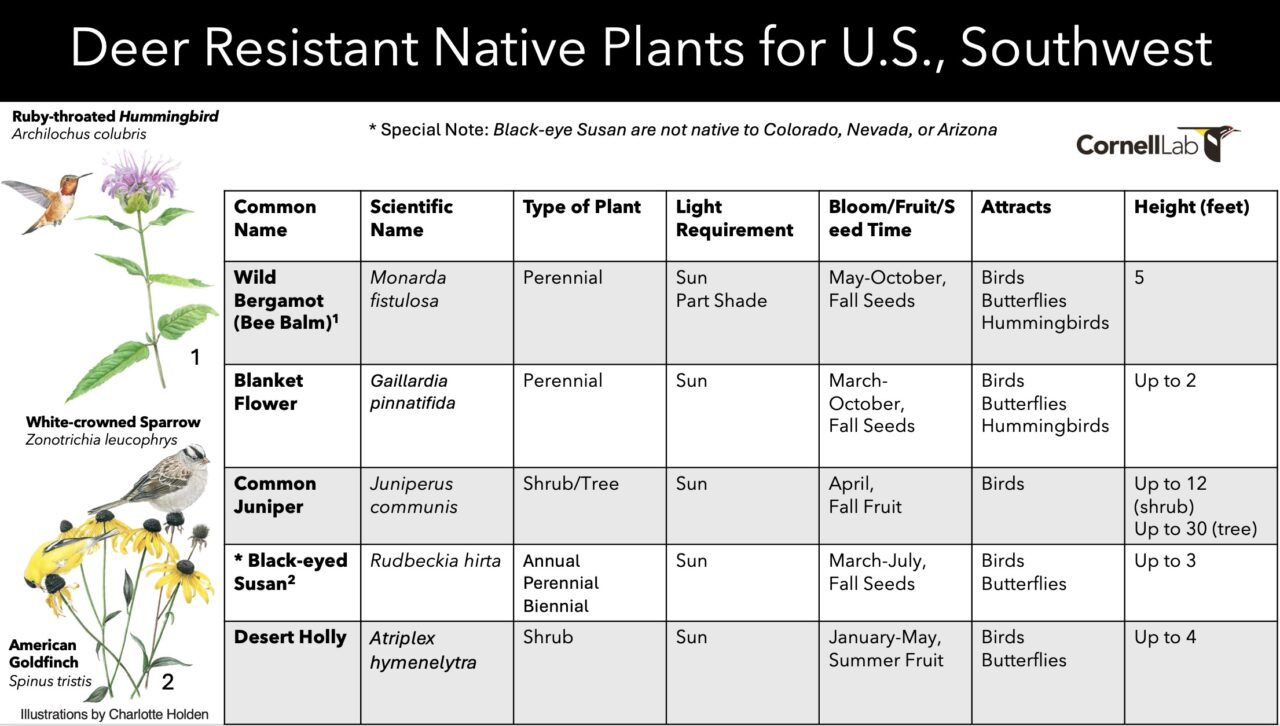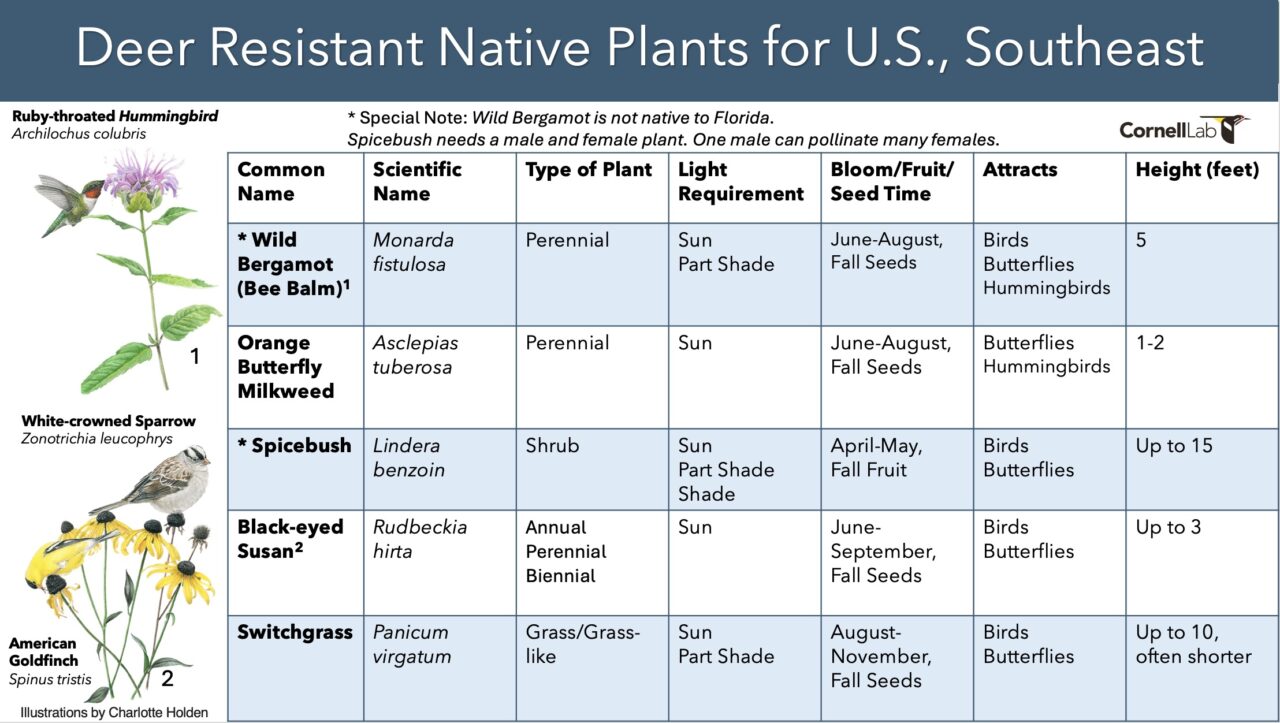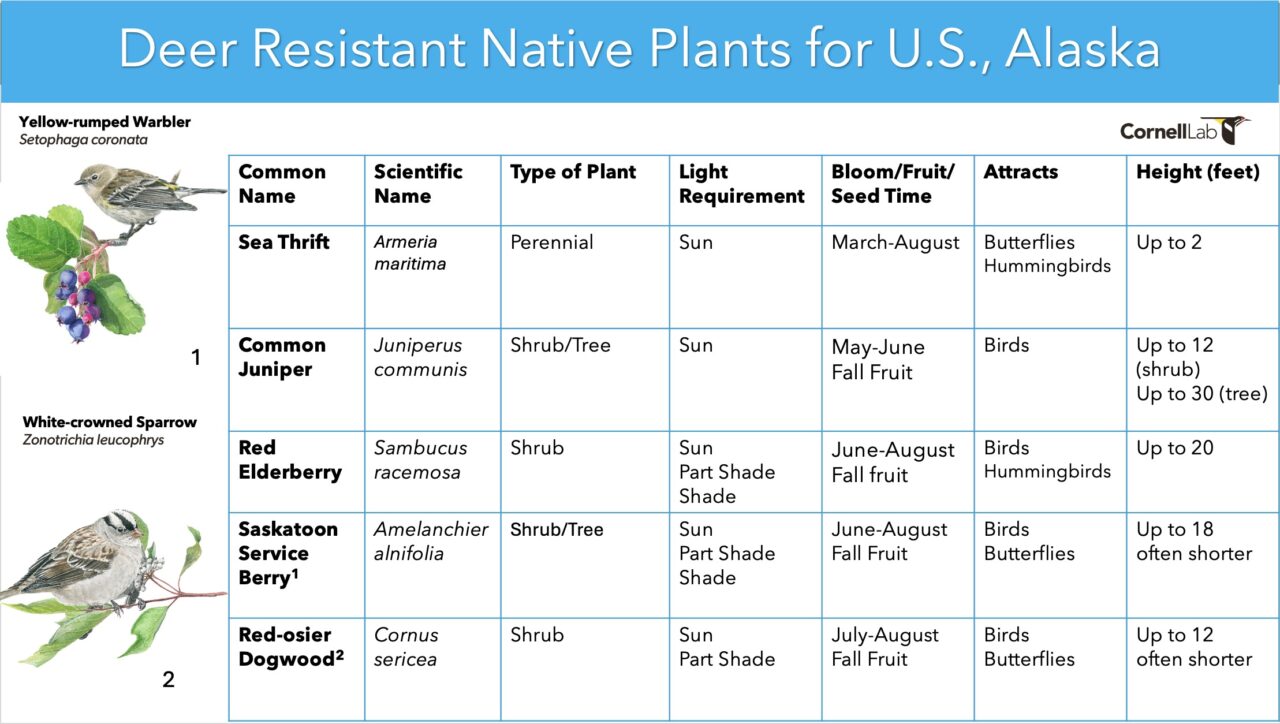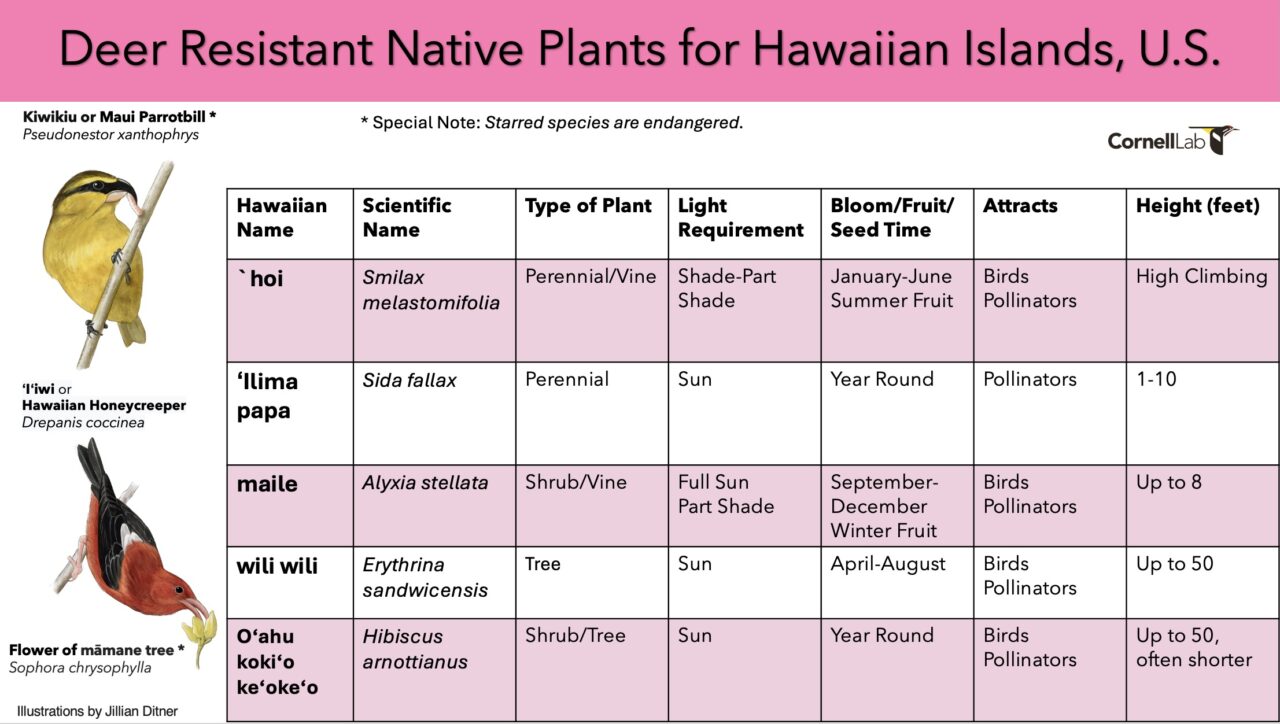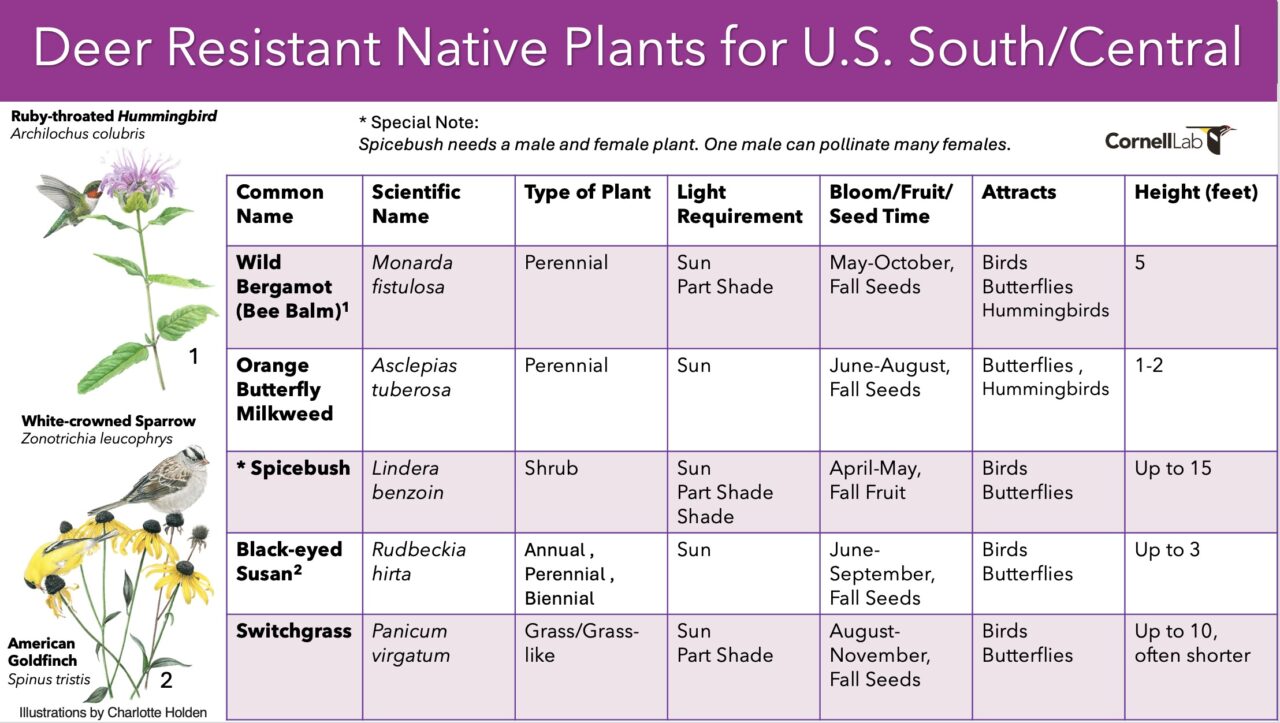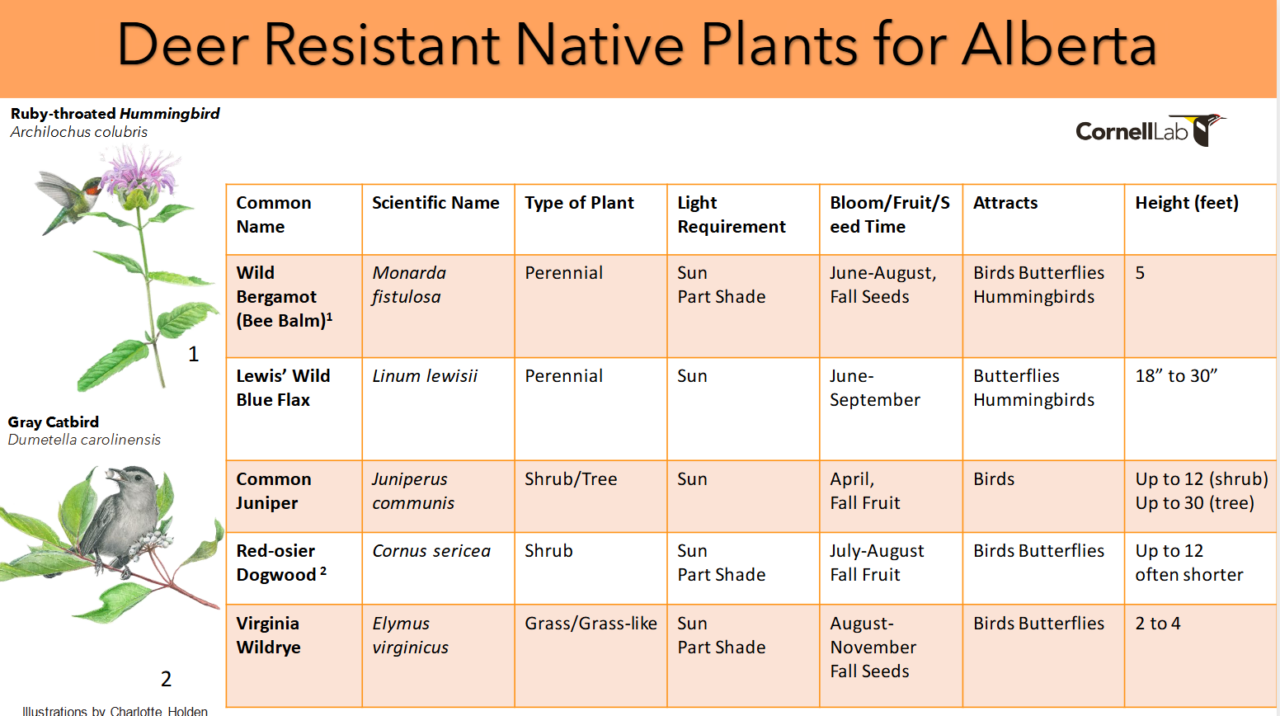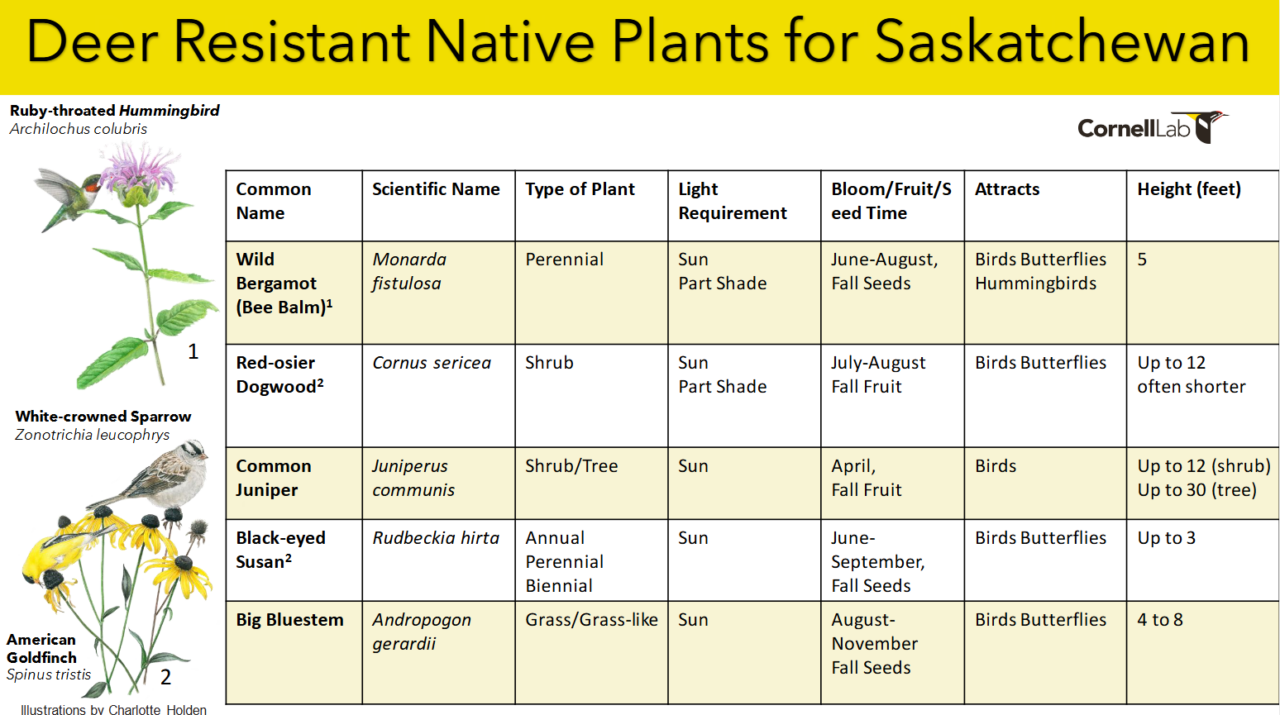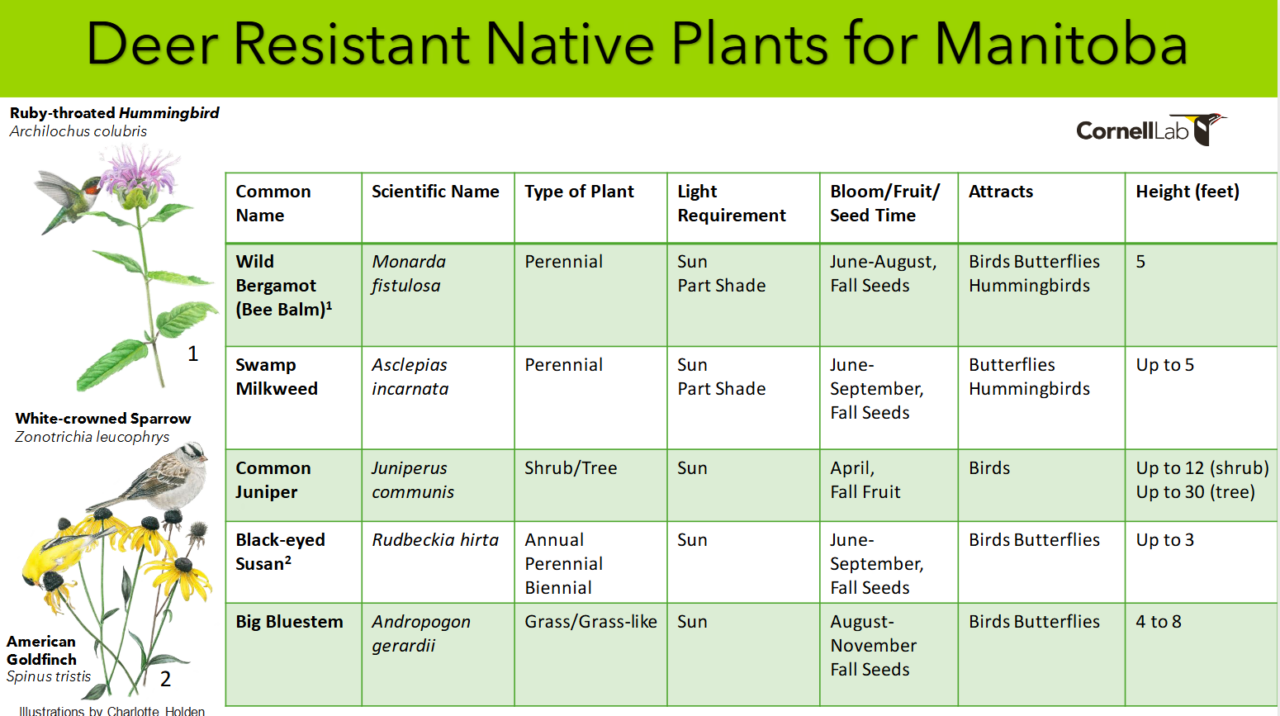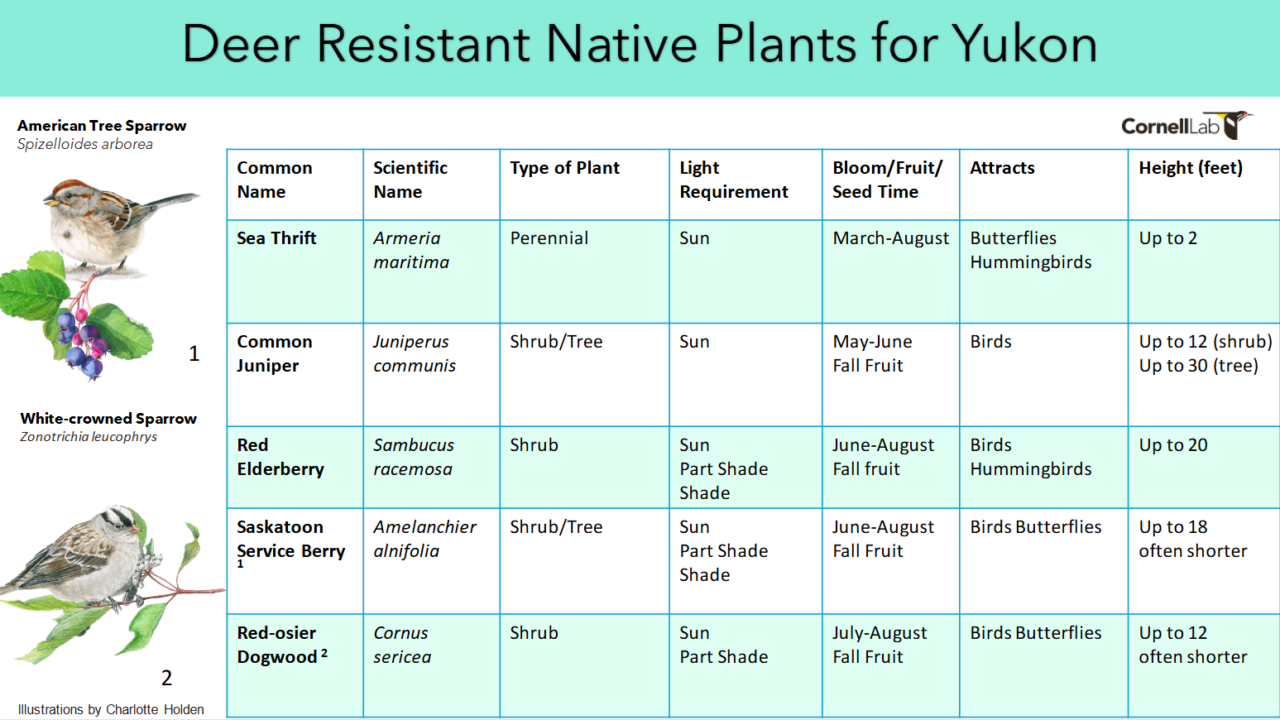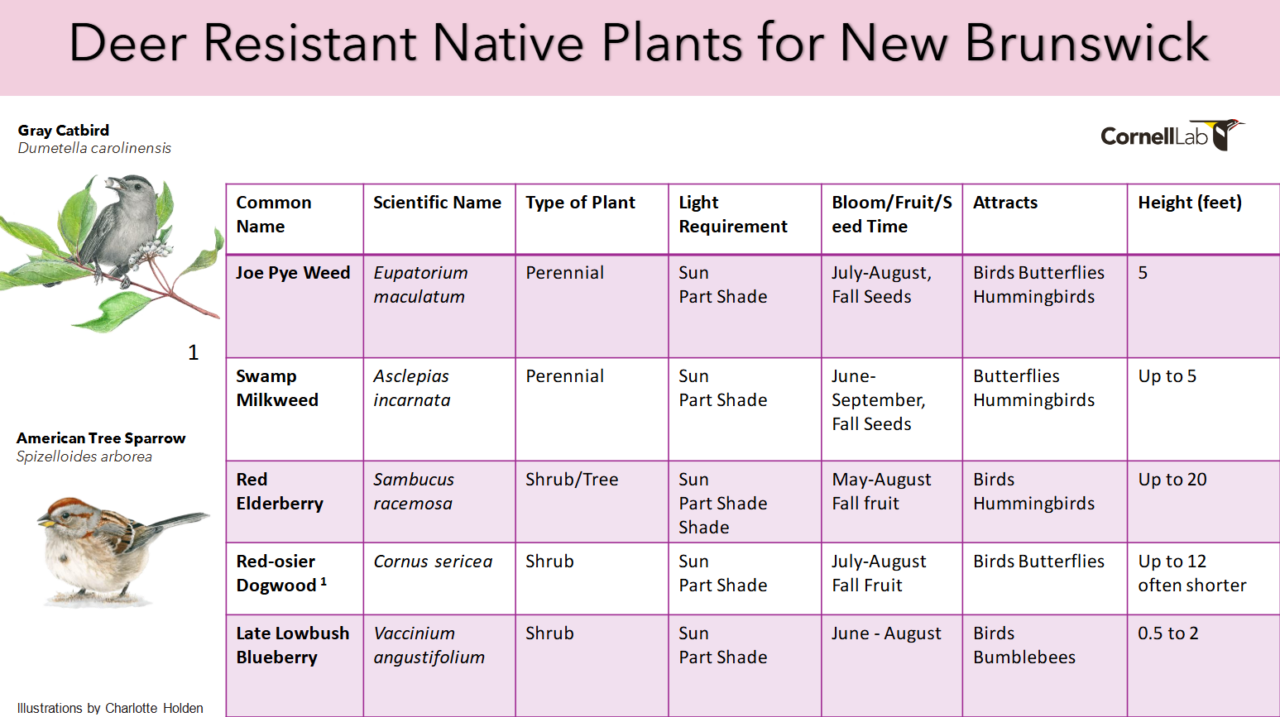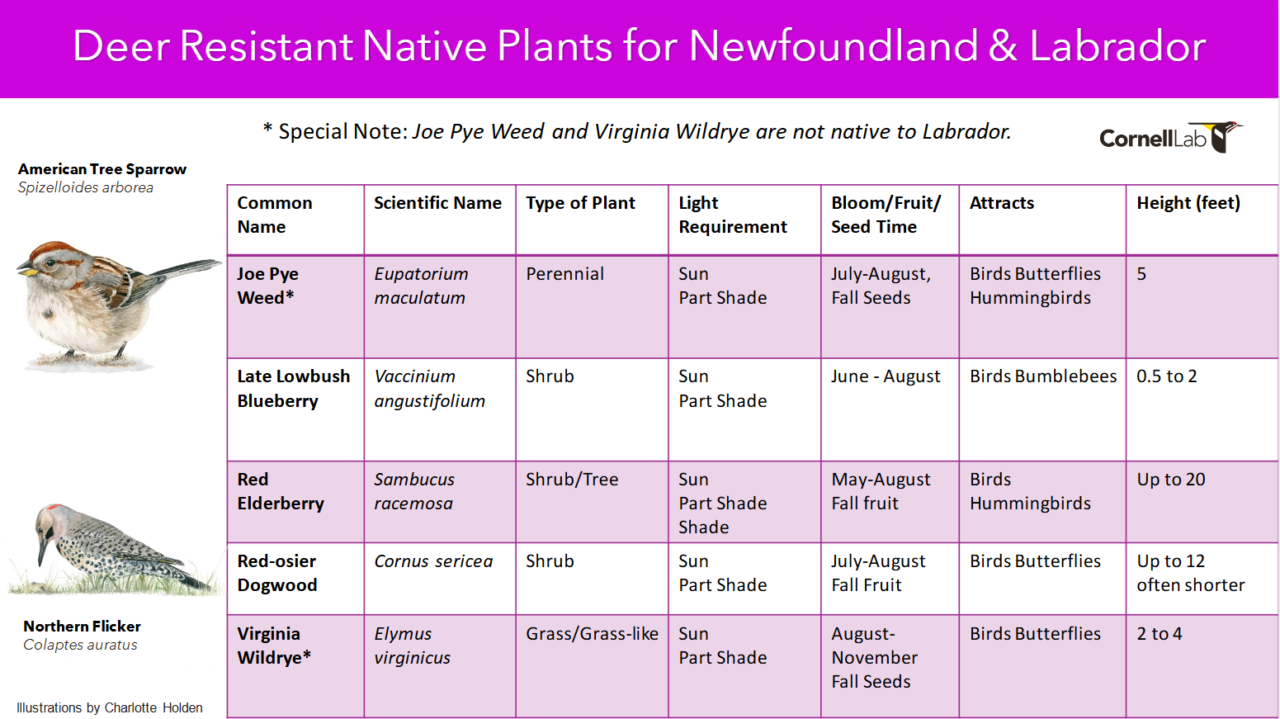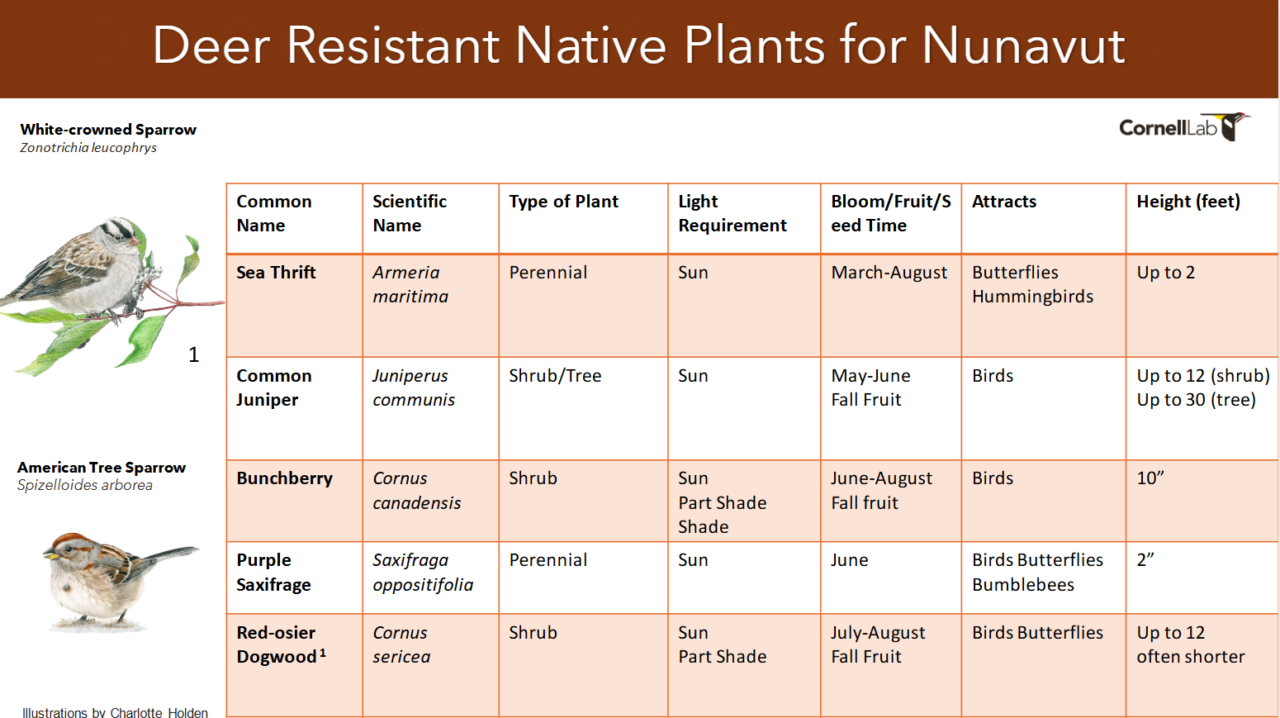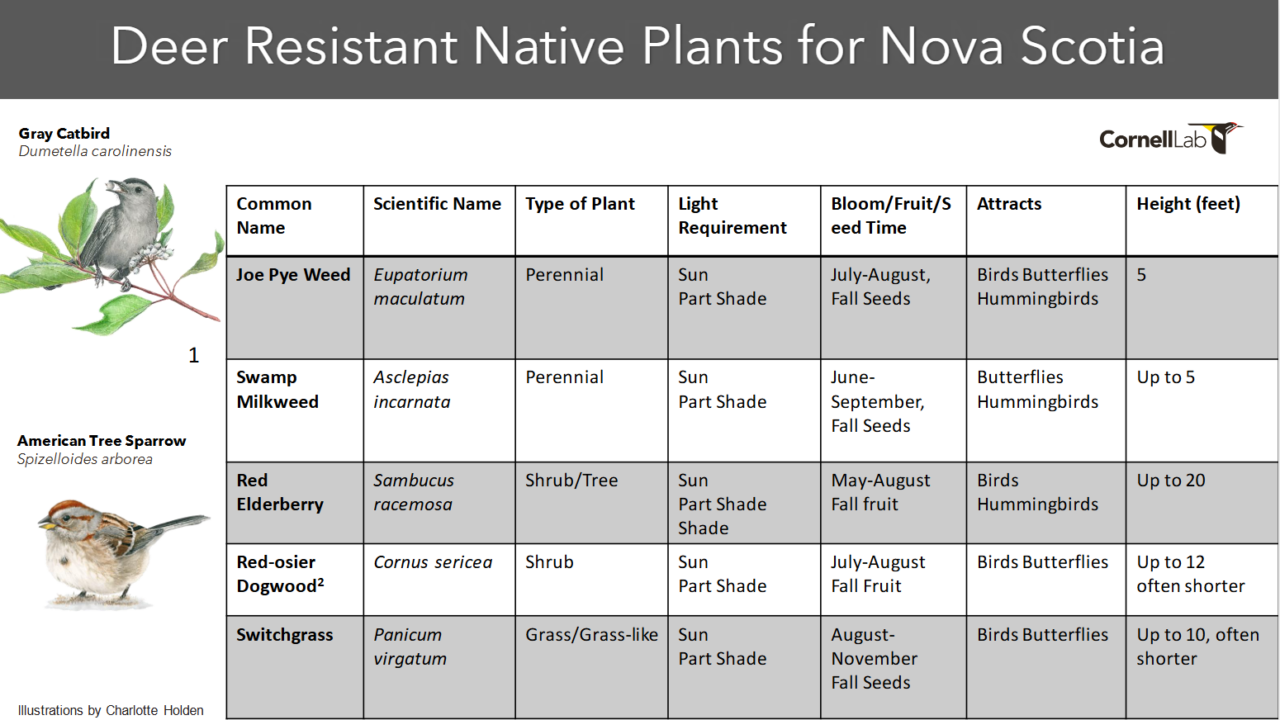Deer Resistant Native Plants by Region
Are deer-grazing your gardens? Below are cards with five native plants per region that won’t be a deer’s first choice to nibble. Remember, deer will try just about anything, but these plants have a better chance than others at being left alone.
Print off these cards or write down the plant names and take them to your local nursery or look them up on Garden for Wildlife. Try planting these unpalatable plants in clusters of three or four. Then, even if deer do sample them, there will be plenty left behind!
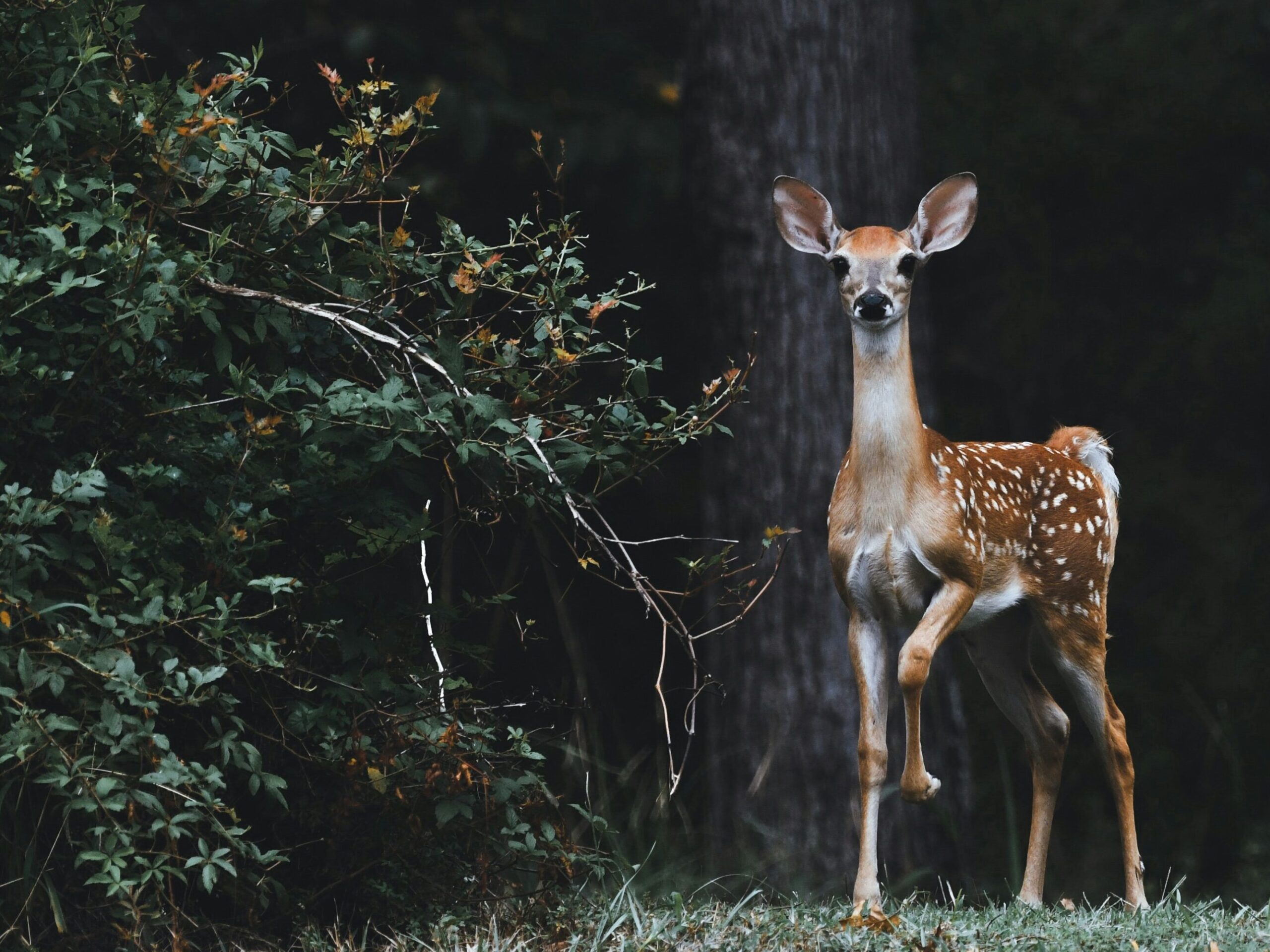
Click on the card that matches your region, right click, and save the card for future reference.
Regions in the United States
Canadian Provinces
Please note these lists are not exhaustive, there are other native plants that have deer resistance. Garden for Wildlife does not carry them all.
Return to Gardening for Birds Homepage
Stay connected to the Great Backyard Bird Count.
By subscribing to stay connected to the Great Backyard Bird Count, you agree to receive communications from The Cornell Lab, Audubon, and Birds Canada. You may unsubscribe from any of the organizations' communications at any time.

